Did you know that Bosra’s Roman theatre is one of the best-preserved ancient theatres in the world, with its massive basalt stone structure surviving intact for nearly 2,000 years? This remarkable 15,000-seat amphitheater is just one of the treasures awaiting visitors to this ancient Syrian city. Once the capital of the Roman province of Arabia and an important stopover on the ancient caravan route to Mecca, Bosra now stands as an exceptional testament to several civilizations that have left their mark on this UNESCO World Heritage site.
Getting There & Planning Your Journey to Bosra, Syria
Bosra is located approximately 140 km south of Damascus in the fertile Hauran region of Syria. Before the Syrian conflict, most international visitors would arrive via Damascus International Airport and then travel by road to Bosra. The city is also about 2.5 hours from Amman, Jordan via the Damascus Highway.
Due to the ongoing situation in Syria, travel to Bosra is currently restricted and potentially dangerous. International travel advisories generally recommend against all travel to Syria. This guide provides information for when safe travel becomes possible again.
For those planning ahead, the journey to Bosra typically involves flying into Damascus and then arranging ground transportation. Before the conflict, regular buses and shared taxis (known as “servees”) operated between Damascus and Bosra. Private taxis and organized tours were also available options for the journey.
Best Time to Visit Bosra & Weather Tips
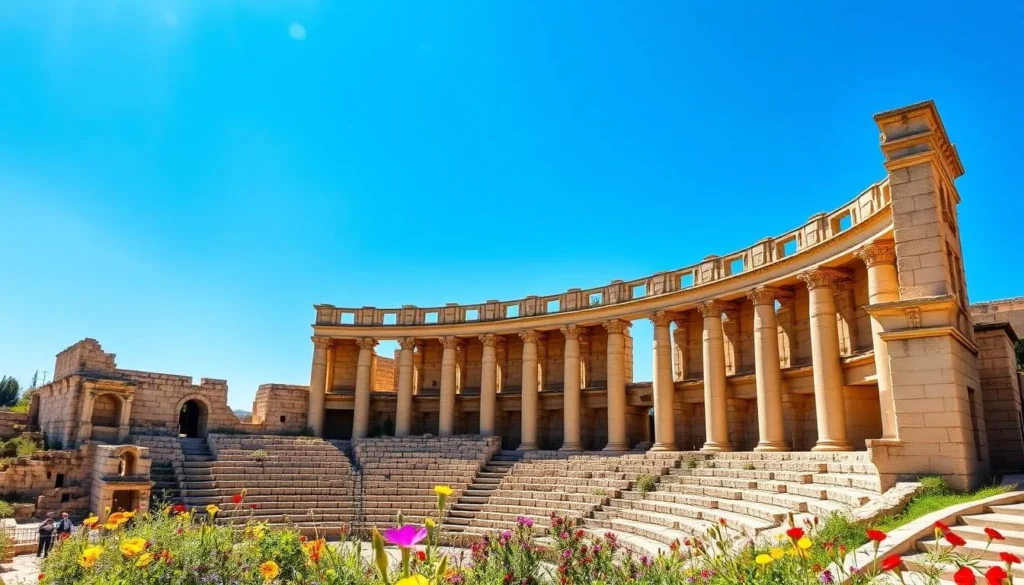
The climate in Bosra is semi-arid with hot, dry summers and mild, relatively wet winters. The best time to visit is during spring (April to May) and autumn (September to October) when temperatures are pleasant for exploring the extensive archaeological sites.
| Season | Months | Temperature | Recommendation |
| Spring | April-May | 18-26°C (64-79°F) | Highly Recommended – Ideal weather and blooming landscapes |
| Summer | June-August | 28-35°C (82-95°F) | Not Recommended – Extremely hot for exploring ruins |
| Autumn | September-October | 20-28°C (68-82°F) | Highly Recommended – Pleasant temperatures and fewer visitors |
| Winter | November-March | 5-15°C (41-59°F) | Acceptable – Cooler with occasional rain, but sites remain accessible |
Summer months (June to August) can be extremely hot, with temperatures regularly exceeding 30°C (86°F), making exploration of the unshaded archaeological sites uncomfortable. Winter (November to March) brings cooler temperatures and occasional rainfall, but sites remain accessible.
Traveler Tip: The black basalt stone used in Bosra’s construction absorbs heat, making summer visits particularly challenging. If visiting in summer, plan your exploration for early morning or late afternoon and bring plenty of water.
Getting Around Bosra
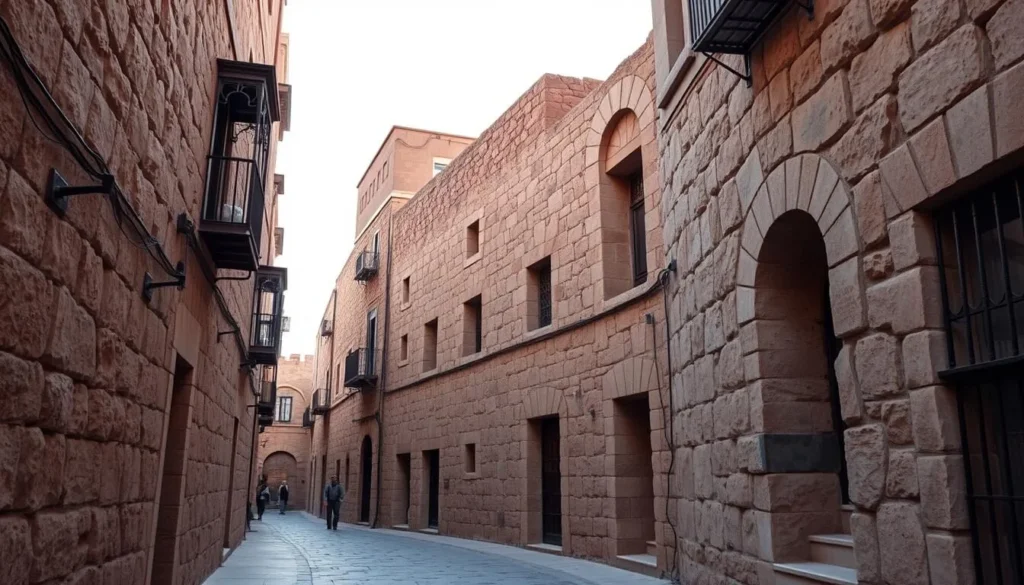
The ancient city of Bosra is compact and best explored on foot. The main archaeological zone is pedestrian-friendly, with most major sites within walking distance of each other. Comfortable walking shoes are essential as you’ll be traversing uneven stone surfaces and ancient pathways.
The modern town of Bosra (Busra al-Sham) surrounds the archaeological site, and while small, you might occasionally need transportation to reach accommodations or restaurants outside the ancient city center.
Before the conflict, local taxis were available for trips around the modern town or to nearby villages. For travelers wanting to visit multiple historical sites in the Hauran region, hiring a driver for the day was often the most practical option.
Local Transport Tip: When visiting archaeological sites, consider hiring a local guide who can provide historical context and help navigate the extensive ruins. Official guides were previously available at the entrance to the archaeological zone.
Where to Stay in Bosra
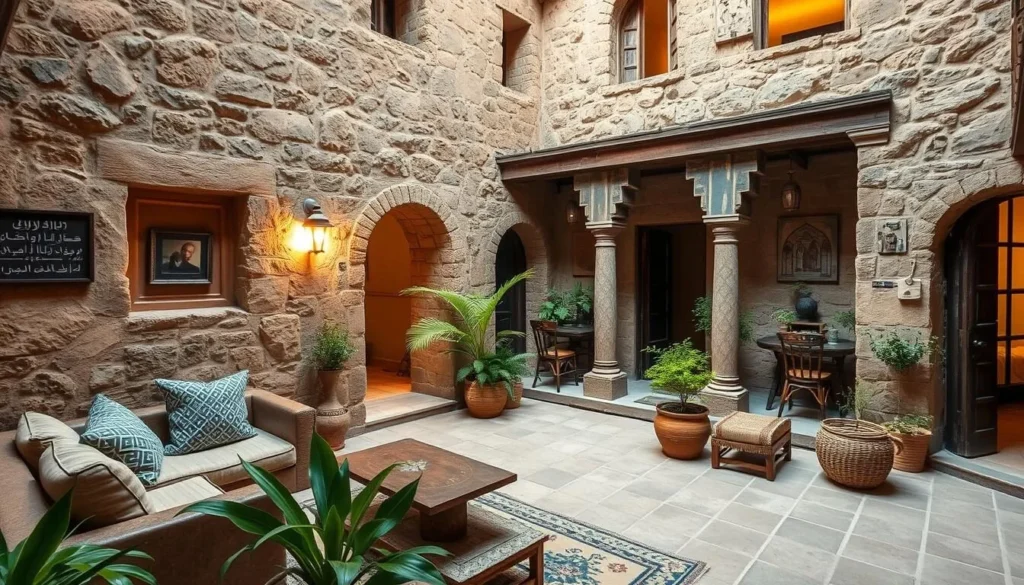
Before the Syrian conflict, Bosra offered limited but charming accommodation options. The most authentic experience was staying in traditional guesthouses (beit) converted from historic homes, featuring traditional architecture with interior courtyards and local decor.
For a wider range of accommodations, many visitors chose to stay in Damascus and make a day trip to Bosra. The capital city offered everything from luxury international hotels to budget-friendly options and was approximately a 2-hour drive from Bosra.
Nearby Daraa and Sweida were smaller cities that also offered accommodation options closer to Bosra than Damascus. These provincial centers had basic hotels that catered to both business travelers and tourists.
Important Note: Due to the ongoing conflict, many accommodations in Syria have been damaged or closed. This information reflects pre-conflict options and will need to be updated when tourism safely resumes.
Dining & Local Cuisine in Bosra
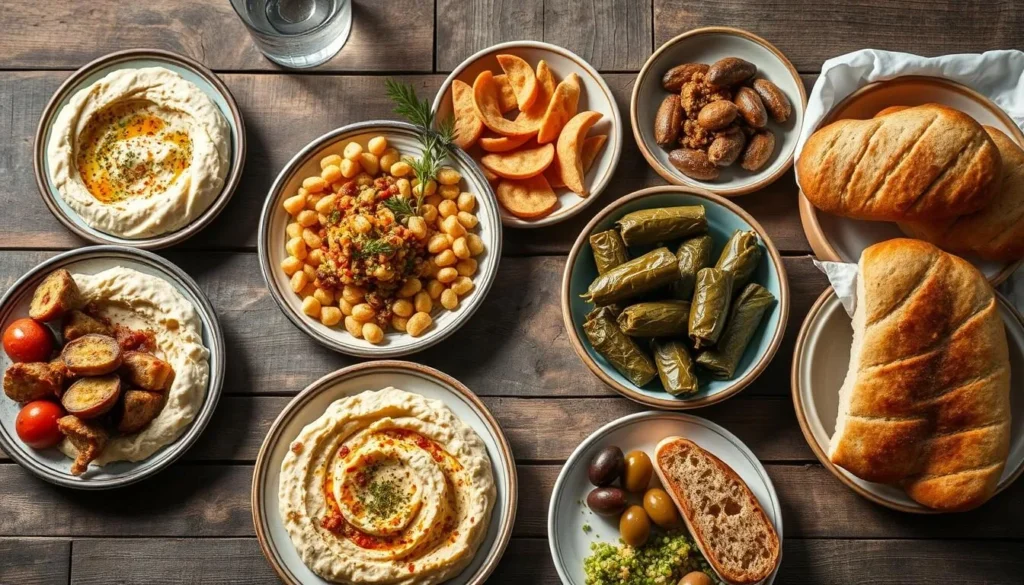
Syrian cuisine is renowned for its rich flavors and diverse influences. In Bosra, local restaurants traditionally served authentic Syrian dishes with an emphasis on regional Haurani specialties. The fertile agricultural region surrounding Bosra produces excellent olive oil, vegetables, and grains that feature prominently in local cooking.
Local Specialties to Try:
- Hourani Bread – A distinctive thick, round bread specific to the region
- Makdous – Baby eggplants stuffed with walnuts, red pepper, and olive oil
- Freekeh – Smoked green wheat often prepared with chicken or lamb
- Muhammara – Spicy dip made from red peppers and walnuts
- Mansaf – A festive dish of lamb cooked in fermented dried yogurt served over rice
Before the conflict, small family-run restaurants could be found near the archaeological site, offering simple but delicious meals. These establishments typically featured outdoor seating during good weather, allowing diners to enjoy views of the ancient ruins while eating.
“The food of Syria is the food of the earth and sun – vibrant vegetables, aromatic herbs, tender meats, and the omnipresent olive oil that ties it all together.”
Tea houses (maqha) were also common, offering a place to rest and enjoy sweet mint tea or strong Arabic coffee after exploring the archaeological sites.
Attractions & Sightseeing in Bosra
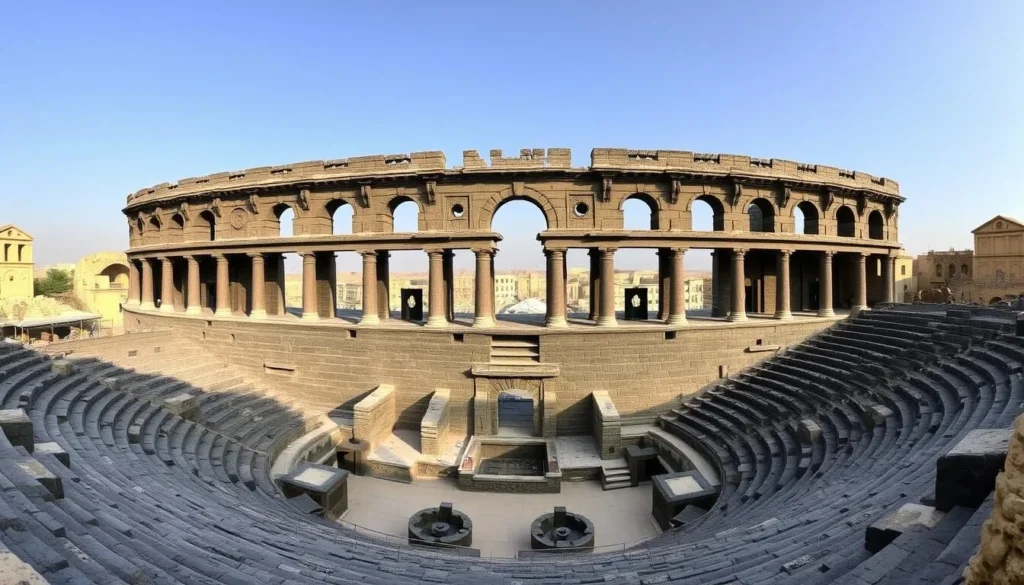
The Roman Theatre
The crown jewel of Bosra is undoubtedly its spectacular 2nd-century Roman theatre. Built during the reign of Emperor Trajan, this 15,000-seat structure is considered one of the best-preserved ancient theatres in the world. What makes it particularly special is that it was later converted into a citadel by the Ayyubids in the 12th century, with a fortress built around it. This adaptation helped preserve the theatre’s structure through the centuries.
The Ancient City
Beyond the theatre, Bosra contains a remarkable collection of ruins spanning multiple civilizations:
- The Nabatean Arch – Dating from the 2nd century when Bosra was part of the Nabatean kingdom
- Roman Baths – Extensive thermal complex showcasing Roman engineering
- Roman Circus – Remains of a hippodrome where chariot races were held
- Colonnaded Street – Main thoroughfare lined with columns from the Roman period
- Nymphaeum – Ornate public fountain that once supplied water to citizens
- Roman Aqueduct – Engineering marvel that brought water to the ancient city
Religious Structures
Bosra’s strategic position and long history have left it with important religious buildings from multiple faiths:
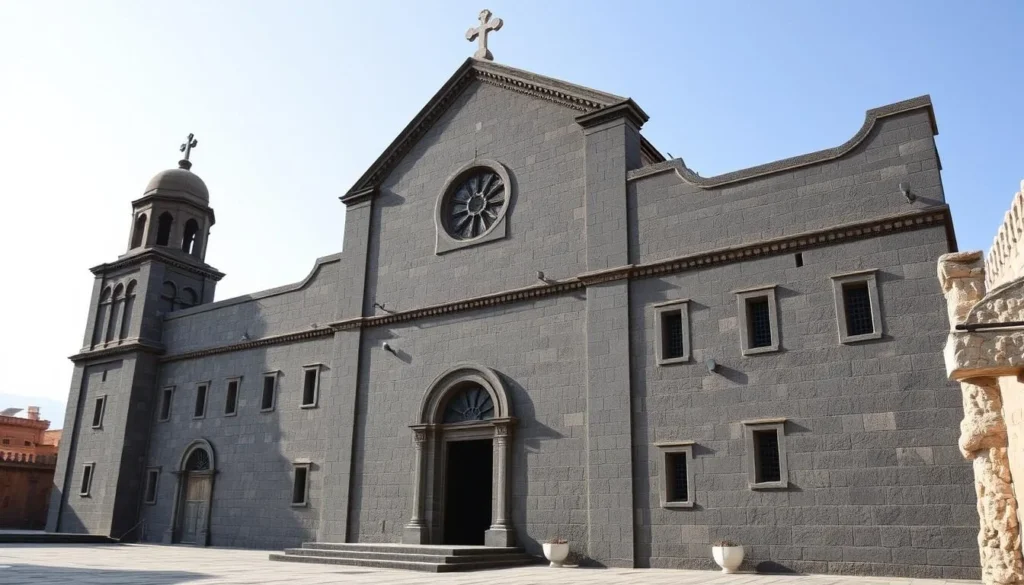
- The Cathedral of Bosra – Dating from the 6th century, this Byzantine church features a unique cruciform design
- Al-Omari Mosque – Considered one of the oldest surviving mosques in the world, dating from the early Islamic period
- Fatima Mosque – Named after the daughter of Prophet Muhammad, an important Islamic heritage site
- Mabrak an-Naqah Mosque – Built where tradition says the Prophet Muhammad’s camel rested
Cultural Experiences & Festivals
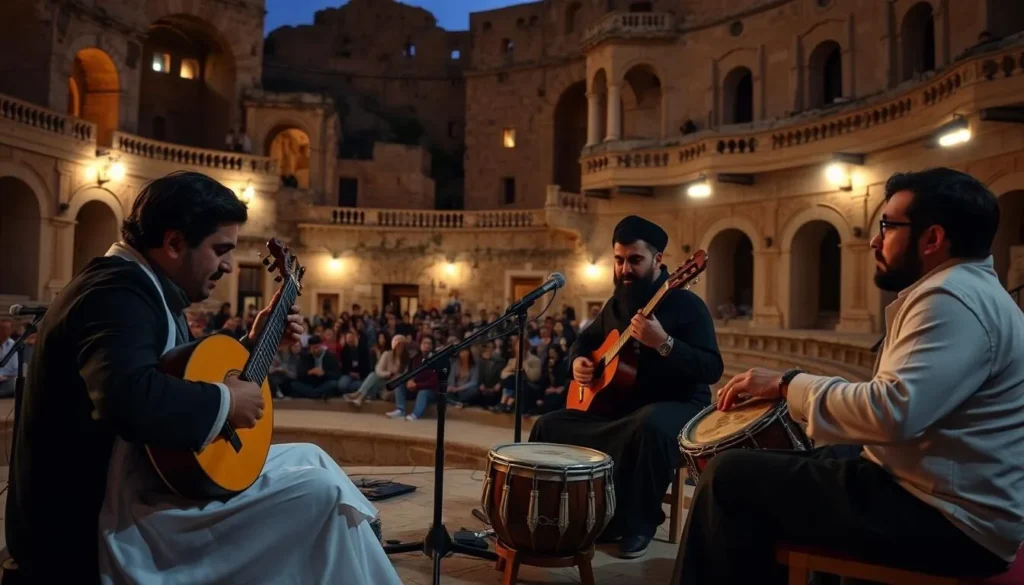
Before the conflict, Bosra’s magnificent Roman theatre served as a dramatic venue for the Bosra Festival of Culture and Arts. This annual event featured performances of music, dance, and theatre against the backdrop of the ancient stones, creating unforgettable cultural experiences.
The local Haurani culture has distinctive traditions in music, dance, and craftsmanship. Traditional crafts included basalt stone carving, carpet weaving, and pottery making, with artisans often selling their wares near the archaeological sites.
Museums and Cultural Sites
While Bosra itself is essentially an open-air museum, the site previously had a small archaeological museum displaying artifacts found during excavations. For more extensive collections, the National Museum in Damascus housed important finds from Bosra and the surrounding region.
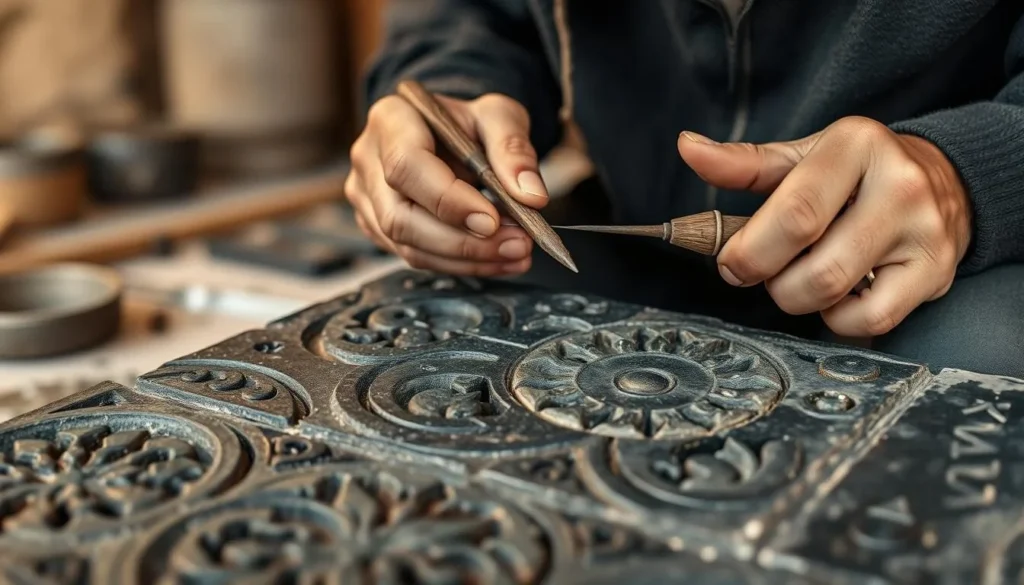
Cultural experiences in Bosra also included opportunities to interact with local families, who sometimes opened their homes to visitors for traditional meals or demonstrations of local crafts and customs.
Safety, Etiquette & Local Customs
Important Safety Notice: Due to the ongoing conflict in Syria, travel to Bosra and other parts of the country is currently not recommended by most international governments. This section provides information for when safe travel becomes possible again.
Syria has traditionally been known for its hospitality and welcoming attitude toward visitors. When travel becomes safe again, visitors should be aware of local customs and etiquette:
- Dress Modestly – Both men and women should dress conservatively, especially when visiting religious sites. Women should cover shoulders and knees, and in more conservative areas, a headscarf may be appreciated.
- Photography – Always ask permission before photographing local people. Avoid photographing military installations or checkpoints.
- Religious Respect – Remove shoes when entering mosques and dress appropriately. Non-Muslims may not be permitted to enter certain areas.
- Greetings – A handshake is the common greeting, though be aware that some conservative Muslims may avoid physical contact with the opposite gender.
- Hospitality – If invited into a Syrian home, bringing a small gift is appreciated. It’s polite to remove shoes when entering someone’s home.
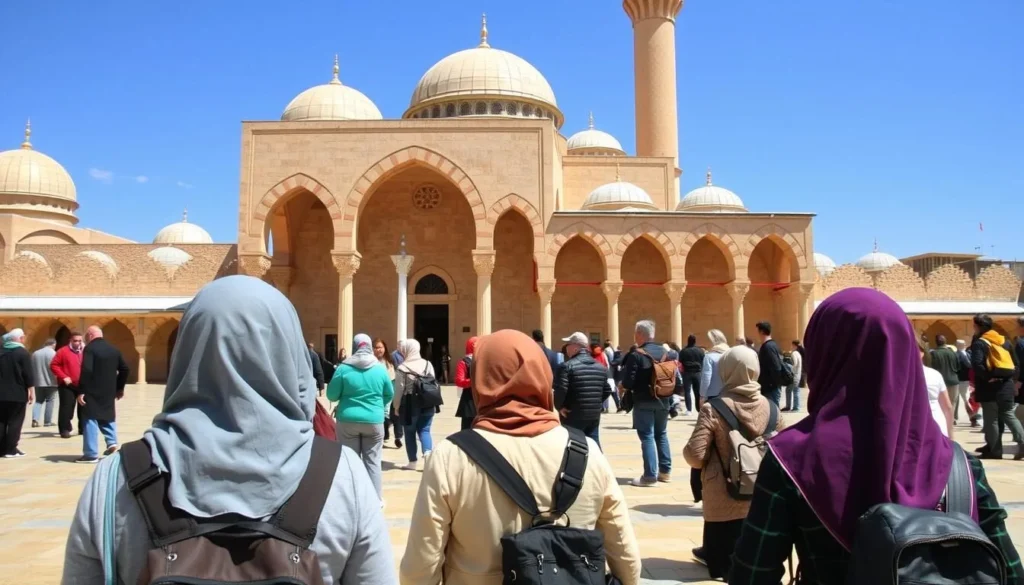
Arabic is the official language of Syria, though before the conflict, English was spoken by some people working in tourism. Learning a few basic Arabic phrases was always appreciated by locals and enhanced the travel experience.
Practical Travel Tips for Bosra
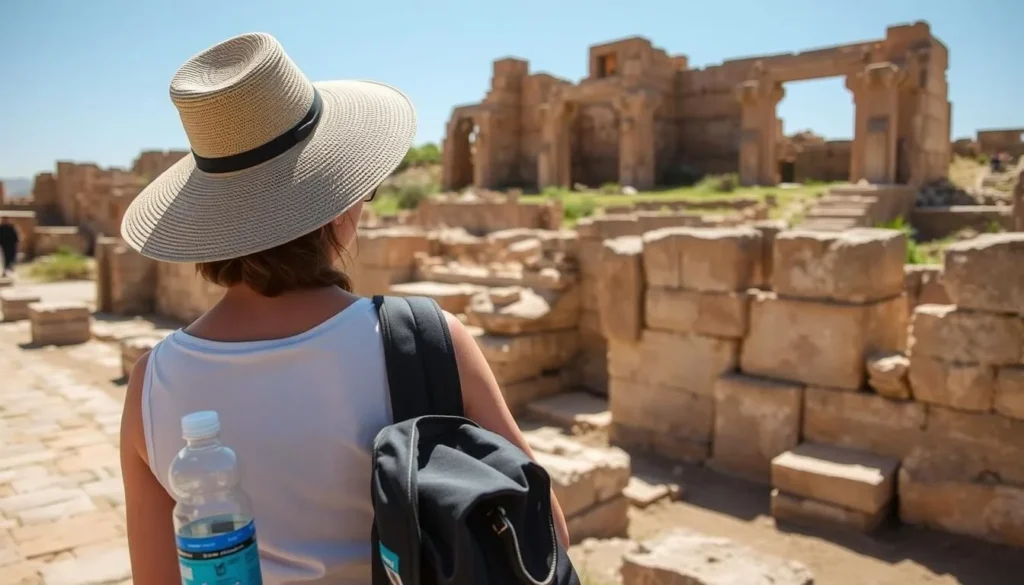
Essential Tips for Visiting Bosra:
- Sun Protection – The Syrian sun can be intense, especially in summer. Bring a hat, sunglasses, and sunscreen.
- Water – Carry plenty of water, especially when exploring the archaeological sites where shade is limited.
- Footwear – Comfortable, sturdy shoes are essential for navigating the uneven stone surfaces of the ruins.
- Local Currency – The Syrian Pound (SYP) is the local currency. Before the conflict, there were limited ATM facilities in Bosra itself, with better options in larger cities.
- Opening Hours – Archaeological sites typically opened from around 8:00 AM to sunset, with possible variations by season.
- Guided Tours – Consider hiring a knowledgeable local guide to enhance your understanding of the site’s historical significance.
Bosra’s archaeological zone is extensive, and a thorough exploration requires at least half a day. Many visitors spend a full day to properly appreciate all the historical structures and take in the atmosphere of this remarkable ancient city.
Photography Tip: The black basalt stone of Bosra’s buildings creates striking contrasts, especially in morning and late afternoon light. These times are ideal for photography, with the added benefit of avoiding the midday heat.
Ready to Discover Ancient Bosra?
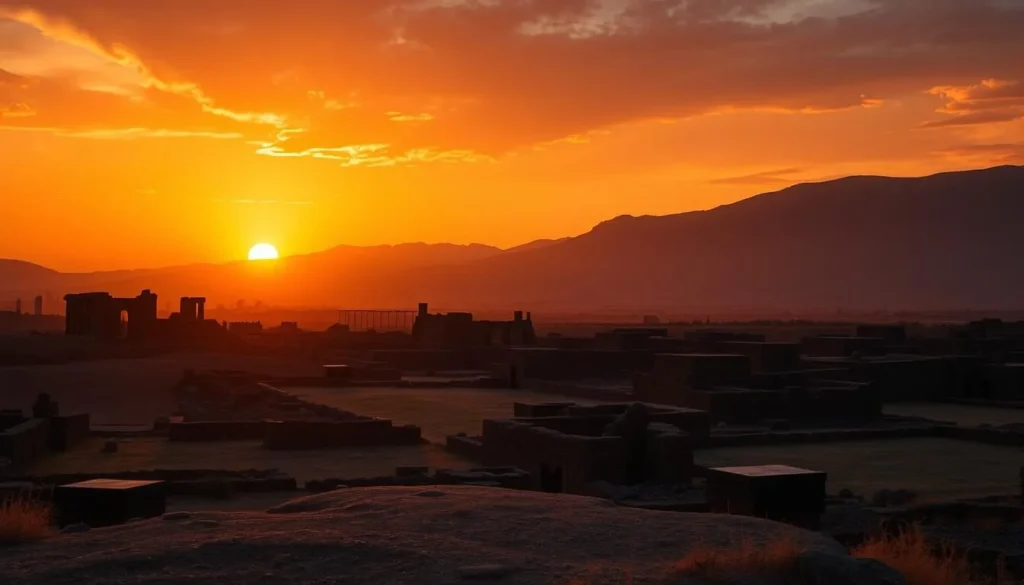
Bosra represents one of the most remarkable archaeological treasures of the Middle East, where layers of Nabatean, Roman, Byzantine, and Islamic history converge in an extraordinary open-air museum. The city’s unique black basalt architecture and exceptionally preserved Roman theatre make it a truly special destination for history enthusiasts and cultural travelers alike.
While current circumstances prevent immediate travel, Bosra’s timeless stones have weathered centuries of history and will undoubtedly welcome visitors again in the future. When that time comes, this comprehensive guide will help you plan an unforgettable journey to one of Syria’s most precious historical gems.
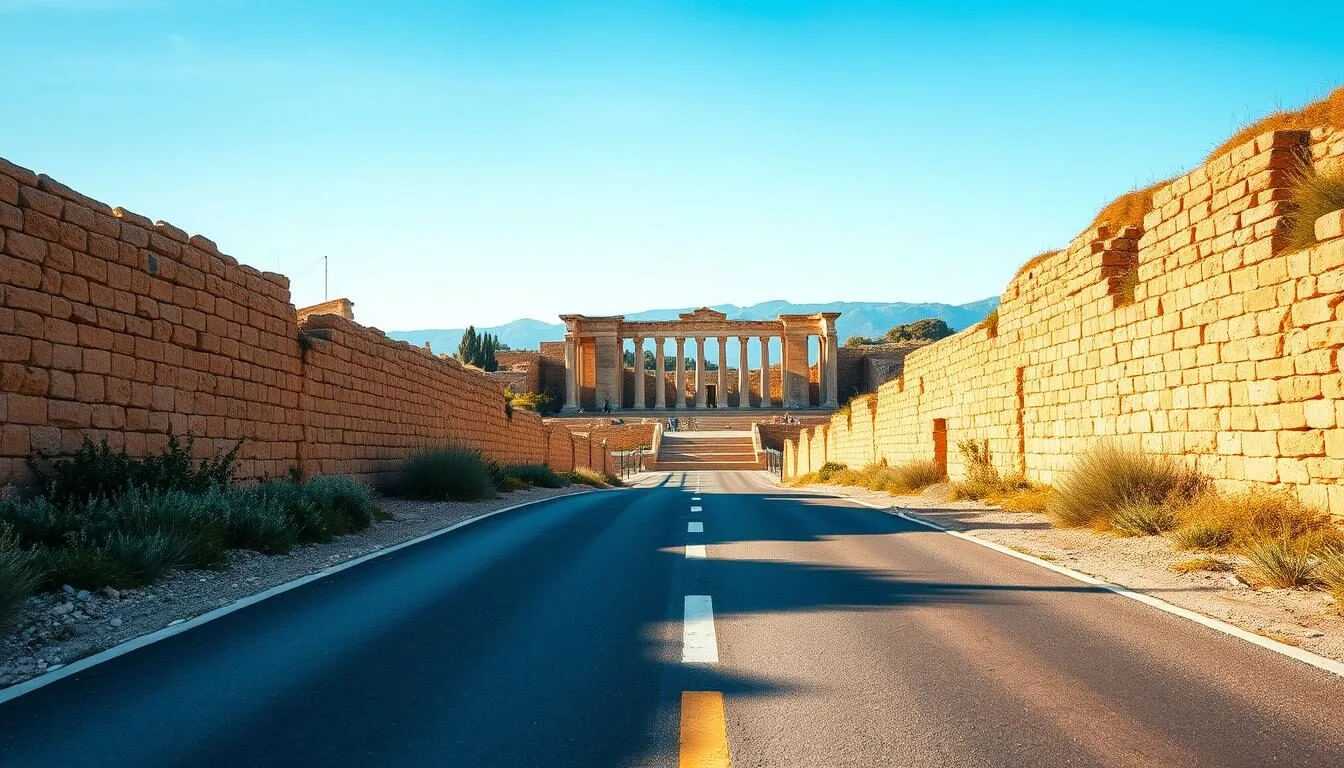

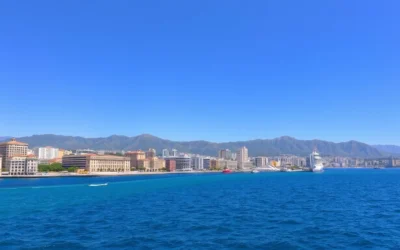

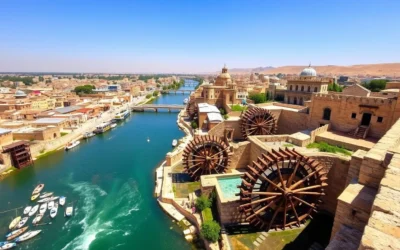
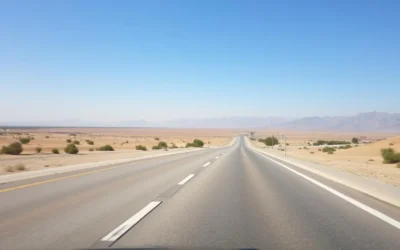
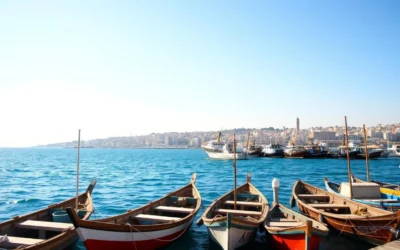
0 Comments